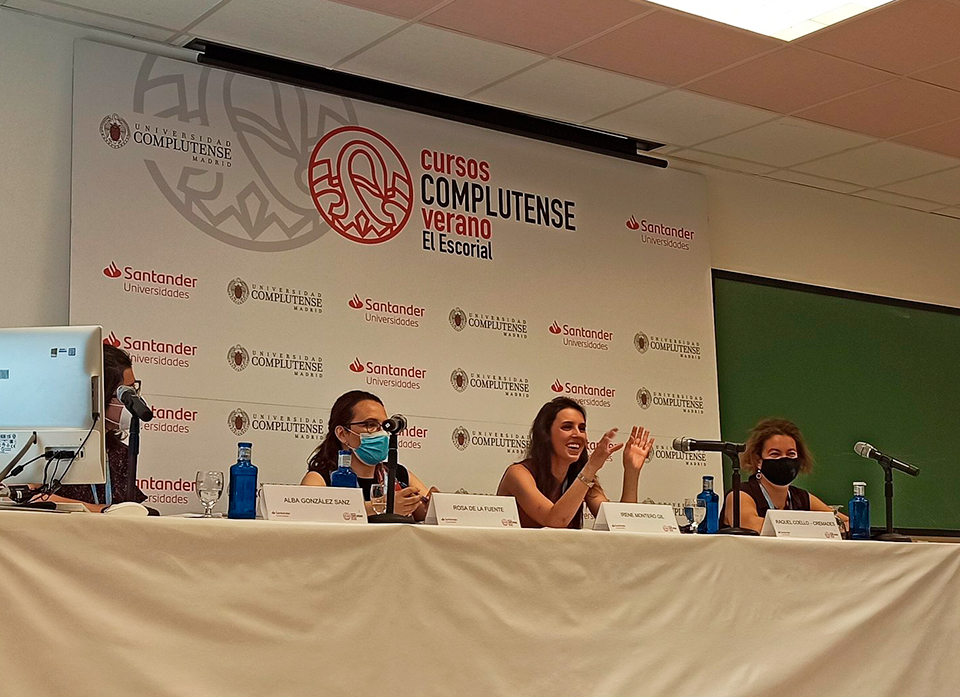UN Women and Minister of Equality of Spain, Irene Montero debate on Agenda 2030 and the care economy
UN Women participates in a course at the Complutense University of Madrid (UCM) with a presentation that highlights the importance of care work and care systems as strategies for transforming public policies with a gender lensDate:

The Complutense University of Madrid (UCM), at the Real Centro Universitario Escorial-Mª Cristina, in San Lorenzo de El Escorial, Madrid, held the 33rd edition of the Summer Courses. The inauguration of the course "The 2030 Agenda: The Great Global Challenge of This Decade" featured a presentation by Raquel Coello, Regional Specialist on Economic Empowerment Policies of UN Women Regional Office for the Americas and the Caribbean, together with Irene Montero, Minister of Equality of Spain, in the session on "People and Partnerships".
The Summer Courses aim to generate a meeting between the university community and society. In view of the current situation caused by COVID-19, the importance of the commitment made to incorporate the principles of the 2030 Agenda into a multilateral framework and the gender perspective has been highlighted. Alliances, pacts, and strategies aimed at advancing towards equality between women and men within the framework of the 2030 Agenda 2030 were discussed.
Minister Irene Montero pointed out that public policies with a gender lens have constantly remained in the background, but that in the current economic crisis there has been a change regarding the importance of social policies and the impact of austerity measures. She also highlighted that the COVID-19 crisis has highlighted the issue of care and the overload of this work - which is invisible - on women. It is therefore essential to make changes in terms of strengthening public services, highlighting the importance of the commonplace and strengthening social and political structures. Finally, she mentioned that the pillars of public policy transformation are the distribution of wealth, time, and care.
According to Raquel Coello, social problems today are global, and therefore solutions need to be looked at globally. In this context, the importance of international human rights frameworks is reiterated. It also recognizes that one of the scarcest resources is time, and if we devote ourselves integrally to care, we reduce the opportunities for political participation, access to the labor market, and deformation.
Care systems allow for the restructuring and reorganization of social responsibility for care among households, states, the private sector, and between men and women, the UN Women specialist pointed out. Finally, she mentioned that the gender equality agenda "is not only an objective in itself but is fundamental to meeting the rest of the objectives" of the 2030 Agenda. Poverty cannot be eradicated without working on gender equality: the poorest households are headed by women and most women in Latin America work informally, as this is the only way to reconcile work and care.
Through both participations and the discussion with attendees, the challenge of advancing the gender equality and the success of the 2030 Agenda was addressed.